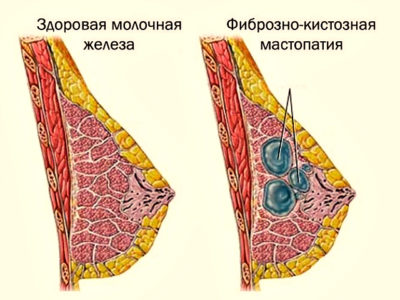

Why does the chest hurt a week before menstruation, and is such pain the norm? The answer to this question may be of interest to both a young girl and a mature woman. As you know, pain signals any ongoing changes in the body. And what these changes are - natural or pathological, can be judged by various accompanying signs and the nature of the pain.
Metamorphoses occurring in the breast in the 2nd phase of the menstrual cycle, that is, after ovulation, are associated with the main function of the female breast - feeding the child. After the maturation of the egg in the female reproductive system, hormonal changes begin, aimed at preparing for pregnancy. The fact that the chest hurts 2 weeks before menstruation may be due to the growth of breast tissue, which directly depends on the influence of the estrogen hormone produced by the ovaries in large quantities before and during ovulation and the hormone progesterone, which affects the size of the breast lobules.
The hormone prolactin, which is strongly secreted by the pituitary gland during this period, also stimulates an increase in the number of lobules and ducts of the glands and increases the maturation and secretion of colostrum. Therefore, in some women, the mammary glands hurt a few days before menstruation, and a drop of clear or whitish liquid may stand out from the chest when pressing on the nipple, which is a variant of the norm, but requires the supervision of a mammologist. These changes in the mammary gland should not cause noticeable discomfort or severe pain. Only an increase in sensitivity, swelling and tension in the chest, its slight increase or a feeling of fullness can be observed. In this case, it is considered normal when the sensations in both breasts are the same. After the onset of menstruation, discomfort and tension disappear due to a drop in hormone levels.
Jumps in hormone levels, increased neuropsychological sensitivity of a woman, physical stress flow into premenstrual syndrome (PMS), and chest pain may be associated with it. Causeless irritation, fatigue can be combined not only with discomfort and pain in the chest, but also with aching, pulling pain in the lower abdomen. Such symptoms are especially pronounced 2-3 days before the onset of menstruation. If the chest hurts 10 days before menstruation, two weeks later, menstruation does not occur, and the chest hurts and continues to hurt, we can assume the onset of pregnancy. When, after a week after the start of the expected menstruation, an increase in temperature joins nausea and vomiting, an ectopic pregnancy is not excluded.
For the treatment and prevention of problems with the menstrual cycle (amenorrhea, dysmenorrhea, menorrhagia, Opsomenorrhea, etc.) and vaginal dysbiosis, our readers successfully use a simple advice of the chief gynecologist Leyla Adamova. Having carefully studied this method, we decided to offer it to your attention.

Abortions, advanced forms of menstrual irregularities, uncontrolled and prolonged use of oral contraceptives, refusal to breastfeeding, promiscuity, alcohol abuse and smoking, as well as an inadequate or unbalanced diet increase the risk of developing pathological changes not only in the female breast, but throughout the entire reproductive system.
Timely examination allows you to limit yourself to medical treatment of the above disorders. Hormonal therapy, preparations containing magnesium, therapeutic compresses, herbal preparations, as well as anti-inflammatory and antibacterial agents for the treatment of the causes that provoked the pathology, are effective, but are prescribed strictly on an individual basis. Self-medication is unacceptable at any stage of the identified violations because it can aggravate the situation. So, it would seem that the harmless homeopathic herbal preparation Mastodinon can promote the resorption of small fibrocystic formations in one woman, help in the treatment of infertility caused by insufficiency of the corpus luteum in another, and provoke the fusion of 2 small cysts in the breast into 1 large cyst in the third. cyst. Therefore, experimenting with your health is not worth it.
If you suspect more serious disorders in the mammary glands (mastitis, tumors) and chest additional studies are being carried out - mammography, biochemical blood tests, analysis of discharge from the nipples, biopsy and computed tomography.
A woman who is the owner of a sufficiently developed or large bust, more than others, needs to take care of the health of her breasts. Despite the fact that more than 60% of women who have reached the age of 35-40 are exposed to mastopathy, you can reduce the likelihood of the disease by following some rules. It is necessary to limit excessive consumption of coffee, salty foods and animal fats; use a comfortable bra made from natural materials with adjustable straps; avoid stressful situations and hypothermia; timely correct any violations in the field of the female reproductive system; lead an active lifestyle without excessive physical exertion.
Have you ever experienced problems with menstrual cycle? Judging by the fact that you are reading this article, the victory was not on your side. And of course, you know firsthand what it is:
Now answer the question: does it suit you? Can problems be tolerated? And how much money have you already "leaked" for ineffective treatment? That's right - it's time to end this! Do you agree? That is why we decided to publish an interview with the chief gynecologist of Russia, Leyla Adamova, in which she revealed a simple secret to normalizing the menstrual cycle. Read article…
Almost every woman at least once in her life faced with a situation where her chest hurts before menstruation. It is not at all a fact that this is a sign of any pathology, but still such a situation should not be completely ignored.
At a minimum, you should find out why the chest hurts before menstruation and, perhaps, try to eliminate the cause of such increased sensitivity. I must say that a woman's breasts are constantly changing throughout the entire period of life under the influence of the following factors:
Some believe that whether the chest hurts before menstruation depends on how evenly developed it is. It's no secret that many women mammary glands develop not quite symmetrically. Quite often, one breast is slightly smaller than the other, or there are slight differences in the shape of the breast.
Almost always left breast slightly ahead of the right in development, but the difference, as a rule, is almost not noticeable. In addition, so far there has not been a direct correlation between whether the chest hurts before menstruation precisely because of such discrepancies or not. Rather, the reason is in the state of the hormonal background of the woman.
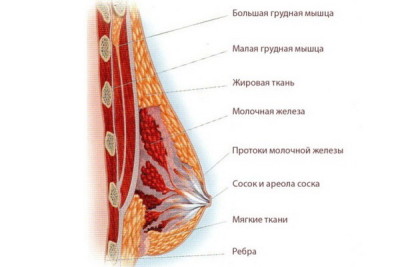
After the mammary glands are formed (approximately by the age of 20), their tissues undergo various changes that are caused by the action of progesterone, a hormone produced by the body. Immediately before ovulation in the second phase of the menstrual cycle, the sensitivity of the breast increases sharply due to the fact that the amount of epithelium increases in the ducts and lobules of the mammary glands. This process is called proliferating, and it is he who provokes a rush of blood, as a result of which the mammary gland slightly enlarges and swells. Often this process is accompanied by painful sensitivity, breast engorgement, which can be perceived by many as chest pain before menstruation. In most cases, if everything is in order with health, such discomfort before menstruation is barely pronounced and goes almost unnoticed by the woman herself.
As a rule, it appears in the breast 7-10 days before menstruation and in a professional environment this phenomenon is called mastodynia. During this period, the woman's body is actively preparing for a possible pregnancy and lactation, and glandular tissue builds up. If pregnancy has not occurred, then the glandular tissue will gradually atrophy, and it is the process of its withdrawal that makes the chest hurt before menstruation.
Such symptoms may indicate hormonal disorders, malfunctioning of the ovaries, the presence of inflammatory processes, and in the worst cases, even cancer. That is why in such cases it is very important to contact a gynecologist, a mammologist, and, possibly, even an endocrinologist in time.
Most often, an examination by a specialist involves, in addition to palpation, a referral to an ultrasound examination of the breast and pelvic area, mammography, and a blood test for hormones. In addition, radiometry or cytology may be ordered if any nipple discharge is observed. The most common reason why the chest hurts before and during menstruation is mastopathy. And the reasons why it can manifest itself can be very different: from a malfunction of the ovaries to an iodine deficiency in the body. Statistics say that almost 80% of women of childbearing age are affected by this disease.
In most cases, a woman can independently identify by touch small seals in the mammary glands, resembling nodules or balls. Sometimes they can be painful when pressed with the fingers, and in rare cases, discharge from the nipples is also present. If we talk about the most common cause of mastopathy, then this list is headed by a hormonal imbalance in a woman's body, due to which stagnation occurs in the mammary glands (glandular ducts are clogged).
It is this process that causes pain, tingling, swelling, etc. In some cases, pain may be felt in the shoulder, shoulder blades, or armpits. In addition, this condition is often accompanied by headaches, irritability, and digestive disorders. If the disease was detected at the initial stage, then even the use of drugs is not always required. Even dieting (limiting salt and sugar in the diet, and increasing fiber, bran, sprouts, berries, and seeds) and increasing daily water intake can help.
In more complex cases, the doctor may prescribe hormonal contraceptives, pills to normalize hormonal levels, or anti-inflammatory drugs. Do not exclude the use of homeopathic remedies. There are many herbal preparations that have analgesic, soothing and decongestant effects. In such collections, you can find celandine grass, nettle, succession, dandelion leaves, etc. One of the most popular medicinal preparations, Mastodinon, contains many herbal extracts, such as common prune, cyclamen, tiger lily, etc. In addition, some plants are able to restore hormonal balance, being plant analogues of estrogens: these include flaxseed, soy, red clover.
From home recipes for the treatment of mastopathy, there are several that will help complement the treatment prescribed by the doctor. So, for example, garlic tincture helps to eliminate knots, for the preparation of which you will need to take about 10 heads of medium-sized garlic and the same amount of lemons. Peeled garlic and peeled lemons need to be finely chopped, then pour 3 liters of filtered water. Let the water brew for 20 hours, then take 1 tbsp. l. after meals 3 times a day. The course of treatment is 60 days. Then take a break for a couple of months and repeat the treatment.
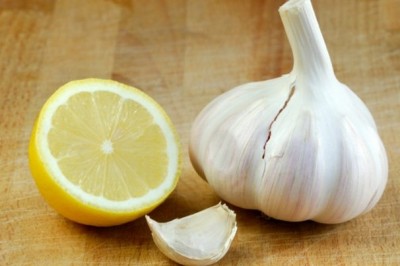
Another effective method treatment of mastopathy is considered to be a tincture of partitions walnut. To prepare it, you will need partitions of 30 nuts, which must be poured with 100 ml of alcohol in a dark glass dish and left to infuse for 7 days in a cool and dark place. It is required to take the finished tincture after eating, three times a day, after adding 1 tsp. tincture in 50 ml of boiled water.
In addition, you can combine the use of infusions with the use of compresses for the chest.
For those who are not afraid of the garlic smell, maybe useful recipe garlic compress. To prepare it, you need to take a large head of garlic, peel and pass through a crusher. Then mix the garlic mass with 100 grams butter. This mixture will need to lubricate the painful areas on the chest, applying a warming bandage on top. It will take about 60 minutes to keep such a compress, and it will need to be applied daily. The course of treatment is 2 weeks.
Have you ever experienced problems with menstrual cycle? Judging by the fact that you are reading this article, the victory was not on your side. And of course, you know firsthand what it is:
An incredibly effective breast enlargement product recommended by Elena Strizh!
The female breast is not only the pride of its owner and a "milk paradise" for her heirs. This part of the body is also a "target" for various changes. Before critical days, young ladies and ladies are plagued by discomfort in the mammary glands. Sometimes it is easier for a woman to endure the usual inconvenience than to calmly perceive their sudden disappearance. If your chest does not hurt before your period, the first thing you will think is: this is suspicious.
Why did the manifestations of the upcoming menstruation “smooth out”? Is there any pathology in the body? These questions can disturb the peace of the vigilant patient.
Young schoolgirls first "get acquainted" with menstruation at twelve or fourteen years old. Menstruation in young ladies is difficult. With the onset of critical days, many patients are exhausted by ailments: nausea, stool disorders, fever. Against the background of these problems, premenstrual "victims of nature" no longer bother the girls.
The annoying pain in the mammary glands, which appeared for the first time, will frighten the schoolgirl. When the girl understands that breast swelling indicates the approach of menstruation, her fear of this phenomenon will disappear.
The mammary glands are subject to cyclic changes. Each menstrual cycle is an event aimed at conception. To save a future pregnancy, the body accumulates special substances. The main substance "responsible" for bearing crumbs is the hormone progesterone. In the second half of the menstrual cycle, the level of this hormone in the blood of a woman increases significantly. The mammary glands of the patient increase due to the rapid growth of glandular tissue in them. The flow of blood in the "gentle spheres" of a woman is difficult. The consequence of these changes is increased sensitivity of the nipples. Swelling of tissues also causes pulling pains in the axillary area.
The "growth" of progesterone in a woman's body lasts twelve to eighteen days. The beginning of this process falls at the time of ovulation. Nature with great wisdom and foresight has provided for every little thing. We know that any tension cannot last forever.
If conception does not happen, the body will turn off the "ready mode" for motherhood. The amount of progesterone will steadily decline. You will notice that the swelling in the mammary glands has disappeared. At this time, you will have menstrual flow. Having become accustomed to the monthly swelling of the breast, the patient will be surprised if the soreness has disappeared. Is everything okay in the body?
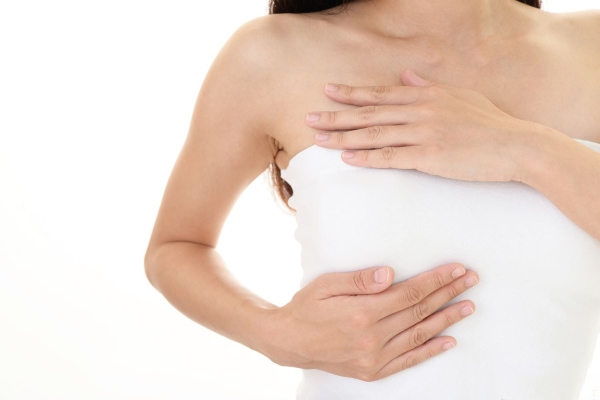
According to the observations of gynecologists, girls with insufficient body weight are most often subject to discomfort in the chest. What is the reason for this pattern? Fragile young ladies often suffer from a lack of female sex hormones in the body. Considerable discomfort in the mammary glands is felt by ladies with pathologies of the gonads and uterus. The more pain a woman had before menstruation, the more she worries if the usual scenario is violated at least once.
Very rarely, the disappearance of discomfort indicates the onset of the disease. Rather, on the contrary: the “calmness” of the chest indicates a woman’s excellent health. Such news can be celebrated.
Let's name the factors contributing to the elimination of unpleasant symptoms in the chest:
Strong pain that affects the "gentle roundness" is not the norm. If the chest aches and hurts with wild force, hurry to see a specialist. An experienced gynecologist will help to find out the cause of excessive sensitivity.
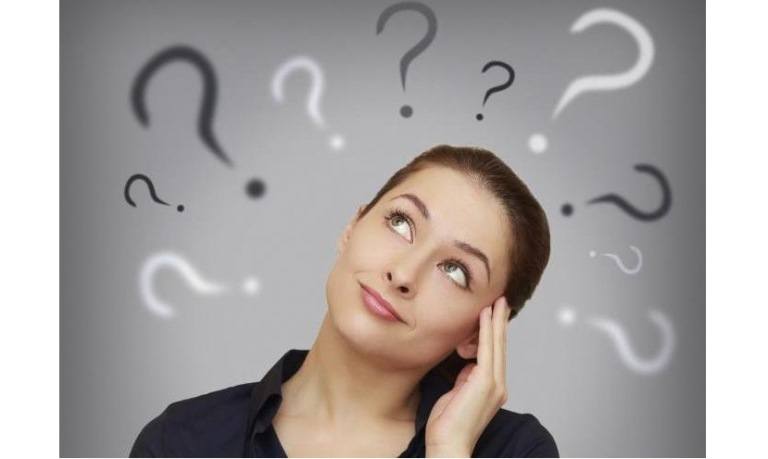
In young girls who have not known the joys of intimate life, there is often an increased sensitivity of the breast before critical days. If a young lady has a too vulnerable, vulnerable psyche, this circumstance worsens the work of her gonads. The appearance of a love relationship becomes a "natural pain reliever" for the young lady. It should be understood that hormonal imbalance cannot go away in one day. If you enjoy happy relationships and stay away from addictions, your reproductive system will improve.
Some young ladies, noticing the unexpected calmness of the “gentle spheres”, think about the onset of pregnancy. This scenario is quite likely if you have a husband and contraception was not your strategy.
It happens that the breast "behaves quietly" the first two months after the abolition of hormonal contraceptives.
Experienced gynecologists know many reasons why the chest stopped hurting before menstruation. Almost all of these reasons carry a huge positive. But there are also worrying symptoms. A woman should pay attention to them in time.
We list the undesirable conditions that you should inform your doctor about:
When physical endurance pleases you, it is unwise to torment yourself with vain worries. Stress affects the work of the sex glands in a very undesirable way. If there is no tension in the mammary glands, but the general state of health has worsened, a woman should consult a doctor.
Follow the link and find out how Elena Strizh did it!
Has life lost its former colors? Nobody loves you? It's time to lose weight, but at the same time you want something sweet? Most likely, the time has come for the next menstruation, and the body loudly declares this. It is difficult to find a woman who would have passed premenstrual syndrome, in particular swelling of the tissues and soreness of the breast.
Breast pain before menstruation (mastodynia) is the most common complaint among women of childbearing age. And the reason for this lies in the body, as a result of which the tissues of the mammary glands retain water and swell. Let's talk about why some of us are haunted by chest pains before menstruation, and how to improve our well-being these days.
Causes of chest pain before menstruation. The female breast is an object of adoration for a man, an object of pride for a woman, and an important component of feeding for a newborn. Identical in boys and girls at birth and in early childhood, the mammary glands increase in size and acquire a more rounded, hemispherical shape during puberty, transforming into mature female breast up to the age of twenty. Due to the fact that the mammary glands are one of the connecting elements of the reproductive system, they are subject to changes against the background of monthly hormonal changes.
So why female breast hurts before menstruation? The reason is that every month the body prepares for the onset of pregnancy, resulting in increased production of hormones that contribute to its preservation. An increase in progesterone, the pregnancy hormone, affects the glandular tissue of the mammary glands, preparing the milk ducts for the lactation process. As a result, a woman's breasts begin to swell, increasing in size: her favorite bra becomes small. In the event that ovulation was “in vain” and conception did not occur, with the onset of menstruation, chest pains stop.
The severity of chest pain during menstruation depends on the individual characteristics of the body, as well as the level of sex hormones. So, for example, if the hormonal balance is disturbed, fibrocystic mastopathy develops, in which chest pain can be more prolonged and pronounced. So, chest pain during menstruation is just a rehearsal for preparing the mammary glands for lactation in the event of pregnancy.
How does chest pain appear before menstruation? In the second half of the menstrual cycle, the process of growth of the glandular epithelium in the lobules of the mammary gland starts, blood flow increases, resulting in an increase in tissue volume. In healthy women, all these processes cause a slight soreness of the chest before menstruation, which is expressed in discomfort during touching, lying on the stomach, etc. Some experts argue that chest pain during menstruation appears only if ovulation has occurred and the body is preparing for bearing offspring.
Mastodynia manifests itself as follows:
Mastodynia often turns the days leading up to your period into an agonizing wait, reducing your productivity and ability to enjoy life.
To alleviate the condition and reduce chest pain before menstruation, doctors recommend the following:
For chest pains before menstruation, herbal decoctions of sage, raspberry leaves, succession, St. John's wort, etc. have proven themselves well. Some of these plants contain naturally occurring phytoestrogens that have been shown to ease and relieve premenstrual syndrome.
Magnesium intake also has a beneficial effect on the course of premenstrual syndrome, reducing its severity. It is recommended to start taking magnesium preparations no later than two weeks before the onset of menstruation.
If your chest pain gets worse during your period, and all of the above methods are ineffective, consider taking a single pain reliever (such as ibuprofen or aspirin). Medication intake must be agreed with the attending physician. Taking medications for mastodynia is an extreme, which should not be resorted to every month. If you experience severe chest pain before menstruation, you should consult a doctor. In most cases, the appointment of hormonal drugs solves this problem.
Chest pain, regardless of the day of the cycle, is an alarm signal. With some serious diseases, as well as before menstruation, pain in the mammary glands may appear.
What can breast tenderness (mastalgia) indicate?
Regular visits to the gynecologist - at least every six months, self-examination of the mammary glands every month, maintaining a healthy lifestyle, may not reduce chest pain before menstruation, but will help prevent the development of serious diseases that can cause serious complications.
Breasts are part of female self-identification and pride, what is there to hide. Both women and men think a lot about her. The breast is glorified in world literature, starting with the Bible, it fed all the geniuses of mankind. However, this jewel causes trouble for the owner - up to 60% of women complain that their chest hurts a lot before menstruation.
Why do the mammary glands hurt so much before menstruation? The answer lies in their complex structure.
The chest has a semilunar structure. The thoracic lobes, resembling a segment of a young month, grow like a month. These lobes consist of adipose, glandular, and connective tissue pierced by milk ducts. The adipose tissue of the breast contains female hormones - estrogens. Before menstruation (about 10-12 days), the amount of estrogen increases dramatically, and the fatty tissue of the breast also increases. This phenomenon is called proliferation. The glands before menstruation change not only the size, but also the structure. The tissue in the middle of the cycle roughens, becomes heavier, the sensitivity increases very much - 3-4 times. The chest begins to pull, whine, hurt. Sore nipples make even a bra difficult to put on.
Many women experience so much discomfort that they refuse sex, sports and other physical activity these days.
2-3 days before the onset of menstruation, the body understands that there will be no pregnancy, and the tissues that have grown during proliferation begin to dissolve. The breast becomes lighter, softer, the engorgement disappears, the nipples lose their size and sensitivity. Usually this alternation is repeated with each menstrual cycle, so that women get used to the features of their bodies.
All the described phenomena - pain, heaviness, engorgement, an increase in size, sometimes itching around the nipples - are called "mastodynia". A slightly frightening word, reminiscent of a mastodon, but it refers to a completely harmless cyclical phenomenon that accompanies the life cycle of almost all women. Mastodynia worries women from the beginning of the establishment of the cycle to premenopause - 40-44 years.
Mastodynia is manifested not only during menstruation. Here are other answers to the question "why do my breasts hurt so much"?
Why does the chest hurt if menstruation has already passed or is still far away? Most likely, you are suffering from mastopathy. As a result of a deficiency of progestrons and an increased level of estrogen and prolactin, the connective tissue of the breast grows, forms uneven nodes and seals of various sizes. Mastopathy in itself does not mean big trouble. Every second woman suffers from it at one time or another in her life. However, untreated mastopathy can lead to tissue degeneration into malignant. It happens to every ninth woman.
The most reasonable action is to run into a antenatal clinic and take a brochure-guide on self-diagnosis of seals in the chest. Or print a brochure from a good popular science site. The point is to have it in front of your eyes - on the dressing table, on the mirror in the bathroom. Once every 10 days thoroughly, according to the brochure, examine your chest. If you are under 35, visit a mammologist once a year, after 35-40 - every six months. With an attentive attitude towards oneself, oncological diseases that have begun in 80% of cases are curable.
Mastopathy is treated with medical, surgical and physiotherapeutic methods. The schedule will be developed by your doctor. You, even without any doctor, can do the main thing for yourself - choose a sparing lifestyle:
Since mastodynia during menstruation, maturation, lactation, pregnancy is a normal, non-pathological phenomenon, it does not need to be treated. Enough to relieve pain and tension.
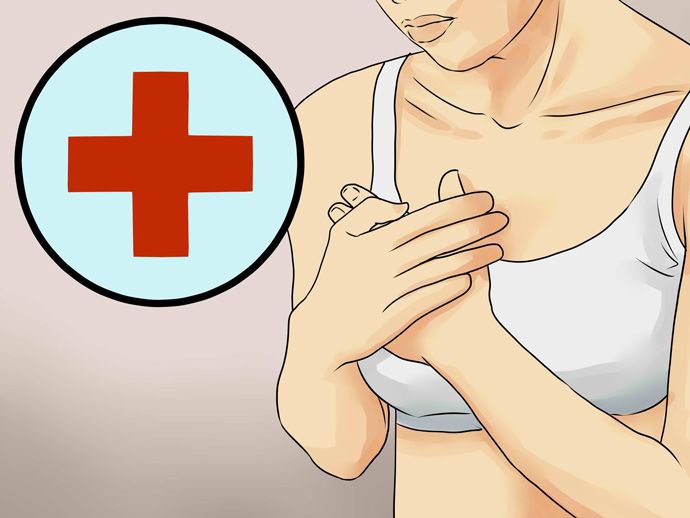
Possible methods:
So, we got to an important and pleasant topic:
There are a lot of herbs that have a decongestant, analgesic and calming effect. The best and most versatile are fees. In their composition, look for celandine, stinging nettle, string, dandelion, prutnyak, flax, soybeans, pink clover.
A good choice is the ready-made phytopreparation mastodinon. It contains extracts from common prune, tiger lily and cyclamen.
At home, you can make a tea collection from equal parts of valerian, mint, fennel, cumin. Pour a teaspoon with a glass of boiling water, leave for half an hour and drink in three servings before meals for a week.
If mastodynia is accompanied by mastopathy, you can try garlic tincture. Throw 10 medium heads of garlic and 10 lemons into a large meat grinder, turn and pour 3 liters of filtered water. We leave the tincture for a day in a dark glass vessel, after which we drink 1 tbsp. l. after meals three times a day. And so 2 months. Then we take a break for 2 months and repeat the course.